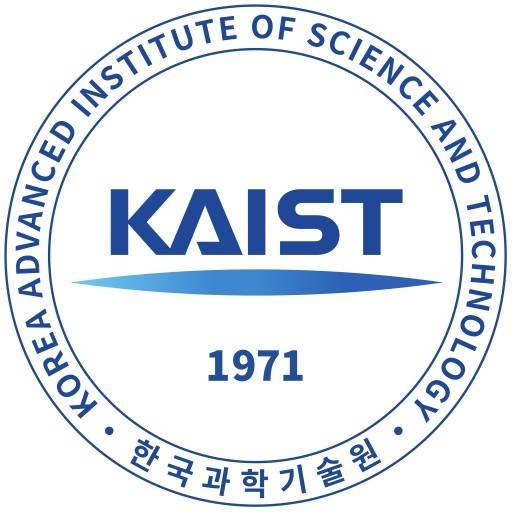Photos of university / #official_kaist
The Civil and Environmental Engineering program at the Korea Advanced Institute of Science and Technology (KAIST) is a comprehensive and innovative educational pathway designed to prepare students for leadership roles in the fields of infrastructure development, environmental preservation, and sustainable development. The curriculum integrates fundamental engineering principles with cutting-edge research and advanced technological applications, fostering students' abilities to address complex challenges related to urban planning, transportation systems, water resources, structural integrity, and environmental protection.
Throughout the program, students gain a solid foundation in core areas such as mechanics, materials science, geotechnical engineering, fluid dynamics, and environmental systems. Emphasis is placed on developing critical thinking, problem-solving skills, and practical engineering design capabilities through laboratory work, project-based learning, and internships with industry partners. The program encourages interdisciplinary collaboration, allowing students to work on diverse projects that incorporate aspects of civil infrastructure, environmental impact assessment, and sustainable infrastructure development.
KAIST's state-of-the-art research facilities and laboratories provide students with opportunities to engage in innovative research activities under the guidance of distinguished faculty members. Areas of active research include smart infrastructure, climate resilience, water treatment technologies, renewable energy integration, and eco-friendly construction materials. The program aims to cultivate graduates who are not only technically proficient but also environmentally conscious and socially responsible.
Students are encouraged to participate in international conferences, exchange programs, and collaborative research projects, broadening their global perspective and increasing their competitiveness in the international arena. Upon graduation, students are well-equipped to embark on careers in civil and environmental engineering firms, governmental agencies, research institutions, and advanced studies. The program's ultimate goal is to contribute to creating sustainable urban environments and resilient infrastructure systems that can meet the demands of future generations.
Basic Elective
- Human Civilization and Construction
Mandatory Major
- Mechanics of Materials
- Soil Mechanics & Laboratory 1I
- Introduction to Transportation Systems Engineering
- Environmental Science and Engineering
Elective Major
- Structural Mechanics
- Fluid Mechanics & Hydraulics
- Introduction to Sustainable Engineering
- Elementary Structural Engineering and Laboratory
- IT in Construction Engineering
- Evolution of Space & Structures
- Signals and systems for Construction IT
- Soil Mechanics and Laboratory 2
- Design Representation Techniques
- Environmental Microbiology
- Introduction to Geomatics Engineering
- Vibration Engineering
- Structural Mechanics 2
- Design of Reinforced Concrete Structures
- Reinforced Concrete and Laboratory
- Rock Mechanics
- Foundation Engineering
- Spring
- Civil and Environmental Engineering Data Analysis
- Introduction to Smart Transportation Systems
- Water and Wastewater Engineering
- Hydrology
- Solid Waste Management & Soil Remediation
- Construction Management
- Making of ubiquitous Space
- Design of Steel Structures
- Prestressed Concrete
- Structural Design of Building
- Experimental Vibration Engineering
- Geotechnical Engineering Design 1
- Geotechnical Engineering Design 2
- Urban Planning
- Architecture Environment경
- Sustainable Architectural Design
- Water Resources and Groundwater Engineering
- Remediation System Design and Engineering
- U-Eco Policy & Management Engineering
- Special Topics in Civil and Environmental Engineering
- Short Course in Civil and Environmental Engineering 1
- Short Course in Civil and Environmental Engineering 2
연구
- B.S. Thesis Research
- Individual Study
Requirements
- Application Form (original)
- Statement of Financial Resources (original)
- One Recommendation Letter (original)
- Transcript (copy)
- Standardized Official Test Report (copy)
- English Proficiency Test Report (copy)
- Passport or National ID (copy)
- Secondary/Tertiary School Profile (copy)
- Honors and Awards (copy)
- The application fee is USD 80 or KRW 80,000. Payment can be made by credit card or bank transfer after writing application form online. Additional charges (i.e. bank charges) should be covered by the candidates. Please note that application fee is non-refundable and you cannot modify application form once you pay the application fee.
Scholarships
- KAIST International Student Scholarship
- Korean Government Scholarship (KGSP)
The Department of Civil and Environmental Engineering at the Korea Advanced Institute of Science and Technology (KAIST) is a prestigious academic program committed to advancing the fields of civil engineering and environmental science through innovative research and comprehensive education. The program offers undergraduate, master's, and doctoral degrees designed to equip students with both foundational knowledge and cutting-edge skills necessary for addressing complex infrastructure, environmental, and societal challenges. Students in this program have access to state-of-the-art laboratories and research facilities, allowing for immersive learning experiences and practical project work that bridges theory and real-world application. The curriculum covers a broad range of topics, including structural engineering, geotechnical engineering, transportation systems, water resources management, environmental engineering, and sustainable development. Interdisciplinary collaboration is highly encouraged, with partnerships involving other engineering departments, urban planning, computer science, and policy studies, fostering holistic problem-solving approaches. Faculty members are distinguished researchers recognized globally for their contributions to civil and environmental engineering, providing mentorship and guidance to students aspiring to lead innovative projects or pursue academic careers. The program also emphasizes sustainability and resilience, ensuring that graduates are prepared to tackle urgent global issues such as climate change, urbanization, and resource management. Moreover, KAIST’s strong industry connections facilitate internships, collaborative research projects, and employment opportunities, ensuring graduates are well-positioned for successful careers in academia, industry, or government agencies. The program is characterized by its rigorous academic standards and a commitment to nurturing future engineers and environmental scientists capable of making a meaningful impact worldwide. Overall, the Civil and Environmental Engineering program at KAIST provides a comprehensive, forward-thinking education designed to develop leaders who can contribute to building sustainable and resilient infrastructure systems globally.

